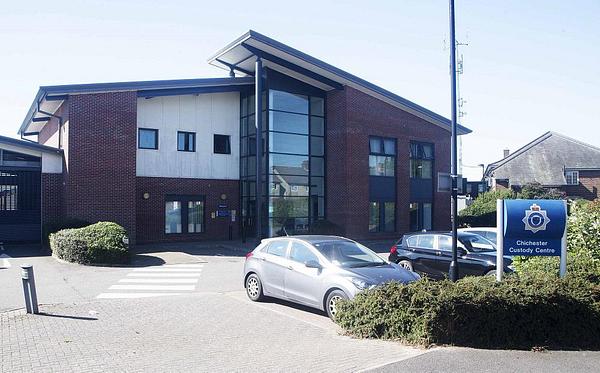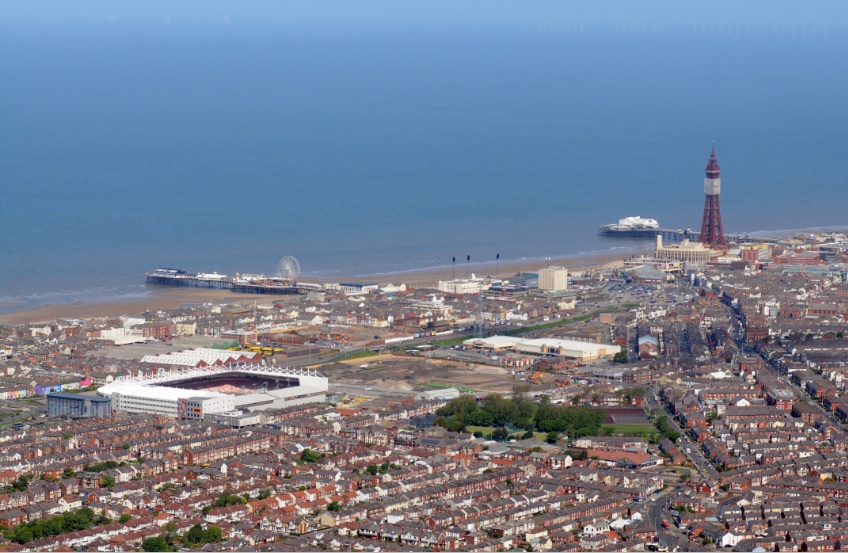An investigation by John Blow, Philip Bradfield, Isabella Cipirska, Tom Cotterill, Michael Holmes, Anna Khoo, Dean Kirby, Joel Lamy, Paul Lynch, Chris McCall and Claire Wilde
In 2002, a brand new NHS maternity unit opened in the Scottish town of Dumfries.
The gleaming £10m structure was to be known as the Cresswell, a name which had been associated with maternity services in the town since the Second World War.
Instead of being funded by the NHS, it was to be paid for and run by private investors.
The local NHS board had agreed to make repayments totalling £48m over the next 32 years, plus inflation, to cover both its construction and operating costs.
This ‘buy now, pay later’ method for building schools, roads, hospitals and other crucial infrastructure - the Private Finance Initiative (PFI) - was rocketing in popularity up and down the UK, championed by Tony Blair’s New Labour Government.
But fast forward to today, and no babies have been born at the unit for nearly two years.
Health chiefs moved maternity services out of the building and into a new £213m hospital elsewhere in Dumfries in 2017 - itself privately funded in a similar deal.
Some £34m in repayments on the old maternity unit, however, are still due to be paid until 2033.
Documents show NHS bosses tried to end the contract early. They later abandoned this attempt.
Two years ago, the Scottish Government agreed to part-fund a plan to plough a further £17.5m of taxpayers’ money into the building to convert it to an outpatient clinic.
But this project has hit delays and work is yet to begin, JPIMedia Investigations has learnt.
John O’Connell, chief executive of the Taxpayers’ Alliance, said: “It beggars belief that politicians signed up for this deal only to see hospital services shifted elsewhere.
“Hospitals don’t come cheap and PFI deals charged princely sums to get new services funded and functioning as soon as possible.
“Signing up to some dreadful deals, paying for buildings to lie empty, completely defeats the point.”
A spokesman for NHS Dumfries and Galloway said the conversion plan had been scaled back substantially and would now cost less money.
He acknowledged work had been “delayed for a period” but insisted it would take place next year and the refurbished unit would reopen.
And he defended the decision to enter into the PFI scheme in the first place, saying the “development allowed NHS Dumfries and Galloway to deliver high quality maternity and day surgery services from a modern, fit-for-purpose building for 16 years”.
The Scottish Government has a different view.
A spokesperson said: “We share the concerns around the flexibility and the value for money offered by historic PFI contracts, which are often complex, need active management, and cost the taxpayer around £240m every year for NHS buildings.”
Dumfries Facilities Management, which runs the building, was approached for comment.
The PFI model worked in a similar way to a phone contract - authorities got their hands on shiny new buildings upfront and would usually get to own them outright at the end of the deals.
It was popular with government departments for a few reasons.
Firstly, the loans didn’t count towards the national debt.
Secondly, the private sector was said to be taking on a lot of the financial risk associated with big projects, such as the danger that construction would overrun and add to the costs.
It is now widely seen as disastrous and the Treasury banned new contracts from being signed last year.
But today JPIMedia Investigations can reveal that the cost of the hundreds of existing deals has ballooned by nearly £5 BILLION since they were originally signed - and we are all footing the bill.
Unite assistant general secretary Gail Cartmail has branded the situation a “national scandal”.
The timebomb explodes
The Dumfries case is not the only PFI deal that has left an authority with a costly building it is not using but cannot sell.
In the south east of England, Sussex Police is trying to find a new use for a custody suite which has not been used since November, due to a shortage of demand.
The facility is one of six custody suites the force pays a private company millions of pounds to run each year.
Police and Crime Commissioner Katy Bourne has said that “with the benefit of hindsight”, it would not agree to a similar deal today.
But those who were in charge of public authorities at the time have told JPIMedia they felt they had little choice if they wanted to secure investment for their areas.
Mick Young was instrumental in forming deals to build dozens of new schools and care homes during his time as Labour leader of Northamptonshire County Council from 1998 to 2004.
Years later, these decisions came under intense scrutiny when the authority went effectively bankrupt last year.
He said: “If the county had have been allowed to raise the money in a more traditional capital borrowing way, I would have preferred to have done that.
“But the Government would have said ‘no chance’.”
However, a national campaign group believes the public has every right to point the finger of blame at those who signed off on the PFI deals in the early 2000s.
Joel Benjamin, co-founder of The People Versus PFI, said: "Somewhere along the line the consultants that provided the advice on these deals, suggesting they represented value for money, need to be held up to the spotlight - and to some extent, the councillors and commissioners that signed off on PFI deals need to be held to account also.”
PFI began in 1992 under John Major’s Conservatives but proliferated in the New Labour years.
Its use declined in the wake of the worldwide financial crash but deals continued to be signed under David Cameron’s government.
A series of damning reports by Parliamentary committees raised serious concerns about the value-for-money of the model.
Last year, then-Chancellor Philip Hammond said he was ending the practice - but old schemes were to remain.
He announced a new taskforce to help NHS bodies in particular to manage the cost of old schemes - the latest in a series of nationwide attempts to renegotiate contracts to get a better deal for the taxpayer.
But we can reveal that while some authorities have managed to tweak deals to make savings over the years, such efforts have been completely eclipsed by huge added costs on other schemes.
Freedom of Information requests to hundreds of public authorities show many are facing eye-watering bills for relatively minor changes to buildings.
This includes a school charged £25,471 for three parasols, a hospital billed £5,334 for a new sink and a police force which paid £884 for a chair.
Megan Waugh, a researcher at the University of Leeds who is studying PFI, said: “These ‘extra charges’ are incredibly common and a complete rip-off.
“Public authorities trapped in PFI contracts are forced to use the PFI contractor who can and do charge over the odds for basic maintenance and repairs such as £24,000 to adapt a disabled toilet.”
Gail Cartmail, of Unite, said: “Using PFI contracts are like an individual using a credit card, but, in the case of PFIs, it takes 20 to 30 years to pay off the debt – this is not an effective use of taxpayers’ money.
“We have all heard similar stories to the one of a police force being billed £884 for one chair - we really need to put a stop to this outrageous waste of public money.”
Pricey contract extensions and rocketing inflation costs are two other common reasons why authorities are paying out more than they had first expected.
Most PFI deals saw annual repayments linked to inflation, for example to cover the rising costs of paying cleaners each year.
But most deals use the now-discredited Retail Price Index measure of inflation, which tends to run higher than other measures.
It means inflationary rises have been soaring at a time when many public bodies have seen budgets frozen or cut.
And paying more for PFI schemes means authorities have less to spend elsewhere.
Tunnel vision
In England’s north east, costs to maintain a 66-mile stretch of highway have soared by almost £280m, we can reveal.
Highways England has come under fire for a 30-year deal with a private firm to manage the A19 Dishforth to Tyne Tunnel route.
Originally agreed in 1997, the contract was predicted to cost £669m. Now the bill is expected to hit a staggering £946m.
In total, 11 PFI deals signed off by Highways England, outsourcing the maintenance of some of England's busiest motorways and A-roads, are expected to cost £786m more than originally predicted.
The revelation has stunned politicians, who are now demanding answers.
Councillor Matthew Storey, leader of Middlesbrough Council, said the A19 was a “critical route” to the town but was worried by its soaring costs.
He said: “I am very concerned. This has to be value for money and a good deal for the taxpayer - in this case it clearly isn’t.
“It needs to be investigated how and why this has happened. To be running at that level of expenditure, over and above what it was expected to be, is huge.”
Of the 11 projects agreed, all but three will cost the taxpayer more than anticipated.
A scheme to overhaul the M25 around Greater London has surged in cost by £255m, to £10.2bn.
Operation of a stretch of the A1 through West and North Yorkshire is set to cost an extra £132m -– a 14 per cent rise from its original £921m budget.
And a deal outsourcing the running of the nearby M1-A1 link road in West Yorkshire has seen costs rise by £114m.
Concerns have now been raised that the escalating costs of old PFI deals are drawing cash away from future infrastructure projects.
In West Yorkshire, a community is campaigning for Highways England to transform a disused railway tunnel near Bradford into a new cycle highway.
Campaigners claim it would take just £6.9m to save the 1.4 mile-long Victorian structure but Highways England, which manages it on behalf of the Department for Transport, wants to fill it in.
Now locals are asking whether its reluctance to preserve the tunnel is linked to its soaring PFI bill.
Norah McWilliam, 71, who heads up the Queensbury Tunnel Society, said: “This is a ludicrous situation Highways England have got themselves into.
“It is absolutely baffling how money can be wasted like this.”
Highways England insisted it was not facing a PFI scandal.
A spokeswoman said: “Highways England commonly works with long term contracts, and it’s normal for them to vary.
“These contracts include operating the roads, such as resurfacing and winter maintenance.”
Nationally, a debate rages over how to deal with old PFI costs.
The Treasury said it was supporting health authorities to manage the costs of existing deals.
A spokesperson said: “As announced in last year’s Budget, we will no longer be using PFI and PF2 funding for new government projects.”
Shadow Chancellor John McDonnell has said a new Labour government will end PFI and bring existing schemes “in-house”.
Labour said the cost of schools and hospitals has “ballooned” under PFI.






